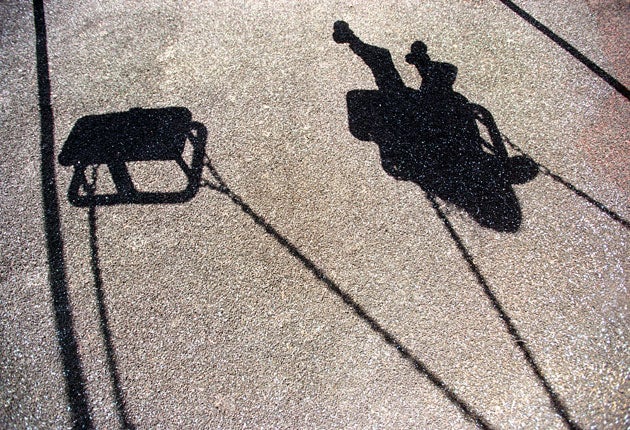Child sex abuse defendants could be granted anonymity
Family welfare charities fear coalition proposals will discourage victims from reporting serious assaults

Your support helps us to tell the story
From reproductive rights to climate change to Big Tech, The Independent is on the ground when the story is developing. Whether it's investigating the financials of Elon Musk's pro-Trump PAC or producing our latest documentary, 'The A Word', which shines a light on the American women fighting for reproductive rights, we know how important it is to parse out the facts from the messaging.
At such a critical moment in US history, we need reporters on the ground. Your donation allows us to keep sending journalists to speak to both sides of the story.
The Independent is trusted by Americans across the entire political spectrum. And unlike many other quality news outlets, we choose not to lock Americans out of our reporting and analysis with paywalls. We believe quality journalism should be available to everyone, paid for by those who can afford it.
Your support makes all the difference.Defendants accused of sexually abusing children or of domestic violence could be granted anonymity for the first time, under the coalition government's first legislative programme.
David Cameron is considering affording the legal right of anonymity to more crimes carrying the greatest social stigma, in an attempt to limit the "reputational damage" caused to the lives and careers of anyone falsely accused.
The move is an extension of the suggestion that defendants in rape cases should not be named until conviction – a proposal that sparked a furious response when it appeared in the coalition's first Queen's Speech last month.
Opponents claimed this weekend that granting anonymity to rape defendants would "reinforce the misconception that lots of women who report rape are lying" – and reduce the numbers of witnesses or other victims coming forward.
Children's campaigners yesterday claimed that extending anonymity to those accused of sexually assaulting a child would be "a retrograde step".
A spokesman for the NSPCC said: "Once someone has been charged their names should be made public so other victims have the opportunity of coming forward. This can help police build a stronger case against the alleged offender and so improve the chances of a conviction.
"Most children find it incredibly difficult to go to court and give evidence against their abuser, because they find it an intimidating experience. If they know there is a greater chance of a successful prosecution, it will give them encouragement."
The furore is the latest troublesome development in a policy that has already caused a huge amount of strife within the coalition, as Conservative ministers struggled to defend what was originally a Liberal Democrat proposal. Mr Cameron faced an angry response in the House of Commons earlier this month as he attempted to explain the suggestion during Prime Minister's Questions. He said: "We know that a lot of people are falsely accused, whose careers and lives can be blighted ... In some cases, people have committed suicide."
Justice Secretary Kenneth Clarke, who stressed that the anonymity proposal had come from the Lib Dems, later suggested that MPs might be given a free vote on the proposal. Lib Dem leader Nick Clegg moved further away from the original plan, hinting that it could be dropped altogether. However, The Independent on Sunday has established that the scope of the measure could in fact be widened, partly in an attempt to dilute opposition to it.
A Ministry of Justice spokeswoman said: "This is a sensitive issue which needs careful and extensive consideration, so we are still in the process of gathering evidence. It is right that as part of this process we consider whether there are any other offences for which the accused should be entitled to the same protection.
"There is a great deal of work to be done, however, and to speculate on its outcome would be highly premature."
Justice minister Crispin Blunt also conceded that "further options" are open to the Government as it fine-tunes the proposal.
He said: "Our coalition agreement also states that we will give anonymity to teachers accused by pupils and take other measures to protect against false accusations. We have not yet discounted any options.
"Whatever our conclusions, I can make it absolutely clear that we have no intention of extending similar protections to rape defendants once convicted. The media will be able to report the cases of convicted defendants in the usual way."
Join our commenting forum
Join thought-provoking conversations, follow other Independent readers and see their replies
Comments